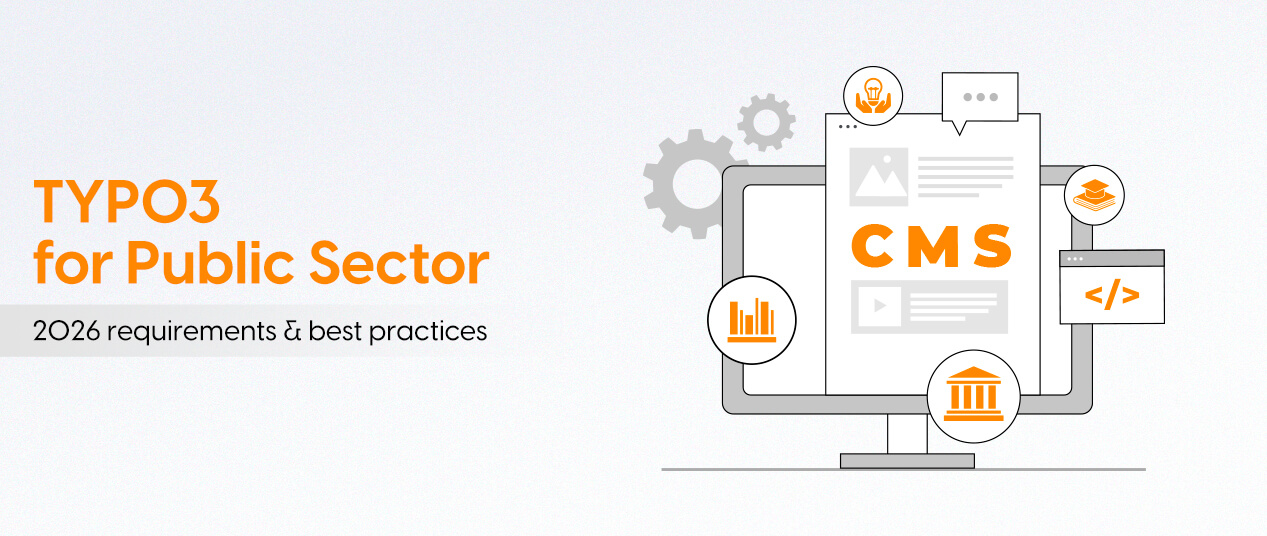TYPO3 is an open-source Content Management System widely used by businesses, organizations, and even individuals in 2024. People across the globe are looking for more and more TYPO3 CMS Certified Developers to help them create extensions and manage their websites.
However, there are multiple aspects related to getting the certification, and each of these needs to be understood properly. With the right set of preparation and efforts, you can easily pass the examination and become TYPO3 CMS Certified Developer.
If you want to know more about this certification and how you can become a certified developer, this guide might help you.
Who is a TYPO3 CMS Certified Developer?
TYPO3 CMS Certified Developer in 2024 is an expert in the field who has the necessary skills and knowledge to provide professional TYPO3 CMS-based solutions to meet quality standards and performance.
As a certified developer, you must comprehensively understand TYPO3 CMS. Not only theoretical but also a practical understanding of its architecture, design, practices, and internals, to implement them on TYPO3-based websites for best results.
Furthermore, as a TYPO3 CMS-certified developer, you ought to have the skill to alter and even create custom extensions. To add more, the developer is able to write clean and document code that Coding Guidelines (CGL) and can handle the full development cycle likewise.
Why TYPO3 Certifications Matter?
TYPO3 Certifications matter in multiple ways. Here are a few of them:
- Increased Credibility - As a certified developer, the TYPO3 community will be able to recognize you as an expert in the field, thus increasing your credibility. Furthermore, such certification brings a sense of dedication towards the technology and the ability to be up-to-date with the latest developments.
- Expertise - Adding a certification to your name verifies that an individual is an expert in the field and helps to validate your skills and knowledge.
- Better Career Opportunity - More skills eventually bring better career opportunities as you can reach potential clients and showcase your certification. Furthermore, you will have more earning potential and new job opportunities.
Types of TYPO3 Certification
Currently, there are four TYPO3 Certifications available based on the skill set. Below are the listed certifications.
TYPO3 CMS Certified Editor
As an editor, the individual will be responsible for managing the page and the content provided by the Integrator.
TYPO3 CMS Certified Integrator
An integrator ensures proper access rights are given to the backend developers, develops templates for the website, and guides the editor with content.
TYPO3 CMS Certified Developer
The developer must know the TYPO3 CMS framework, design, extensions, and architecture to create better TYPO3 CMS-based websites.
TYPO3 CMS Certified Consultant
This certification exam focuses on those who provide consultants, project managers, and product owners providing advice to the customer about the TYPO3 services.
TYPO3 CMS Certified Developer vs. Certified Integrator: What's the Difference?
Both TYPO3 CMS Certified Developer and TYPO3 CMS Certified Integrator are separate certifications and exams for TYPO3 enthusiasts.
TYPO3 CMS Certified Developer focuses mainly on the TYPO3 development and implementation of TYPO3-based websites with the use of extensions and coding infrastructure. This certification requires you to gain extensive knowledge of the technology and create clear codes.
On the other hand, TYPO3 CMS Certified Integrator focuses on integrating TYPO3-based websites and deploying them in various environments. An Integrator is not responsible for installing TYPO3 or even program extensions. Rather, they develop templates, site management, security, and much more.
TCCD Syllabus & Books
To proceed with the TYPO3 CMS Certified Developer, you need to be well-versed with the syllabus and every topic you need to prepare for the examination. Here is a list below of the major topics you need to cover.
- Core Architecture & APIs
- Building Plugins/Modules with Extbase
- Templating and Other Outputs
- Security
- General Extension Architecture
- Software Quality
- Software Architecture for Extensions
- Building Plugins/Modules without Extbase
- Package management
- Best development practices
All the above topics can be available to study directly from the internet, or you can opt for special TYPO3 CMS books that greatly help the students. Here is one of the best we could find.
Official TCCD Exam Study Guide by Michael Schams
This book contains over 200 sample questions along with answers to each of them with detailed explanations to help the readers understand all the aspects of the answers and the reason behind it. Other than his, it covers everything you need to learn in the syllabus.
How to Take the Exam?
There are two modes of examination you can opt for. Offline and Online based on your preference. Here is a detailed instruction on applying for the Online examination.
- Create an account on my.typo3.org.
- Next, log in to your account and go to the dashboard.
- Here, you will find the details of your exam vouchers and the status of the exam.
- Check here to see the system requirements to take the exam online.
- If you do not have the exam voucher, purchase one from their official site.
- Now, copy the voucher code and redeem it from the dashboard.
- Read and Agree to the NDA rules
- Create a ProctorU account to schedule the exam.
You can then keep track of everything related to your exam on the my.typo3.org dashboard.
Conclusion
Here we are with all you need to know about the TYPO3 CMS Certified Developer and how you can opt for the examination. Although the syllabus might seem massive, it is worth opting for.
Being a certified developer will add to your credibility, more job opportunities, and eventually help you earn more money.
If you have any questions about becoming a TYPO3 CMS Certified Developer in 2024, you can let us know in the comment section below, and as an agency for TYPO3, we will get back to you with a detailed explanation.
Keep studying and growing!
Contact for Internet agency and TYPO3 projects
Sven Thelemann
Service Partner - Germany






Be the First to Comment